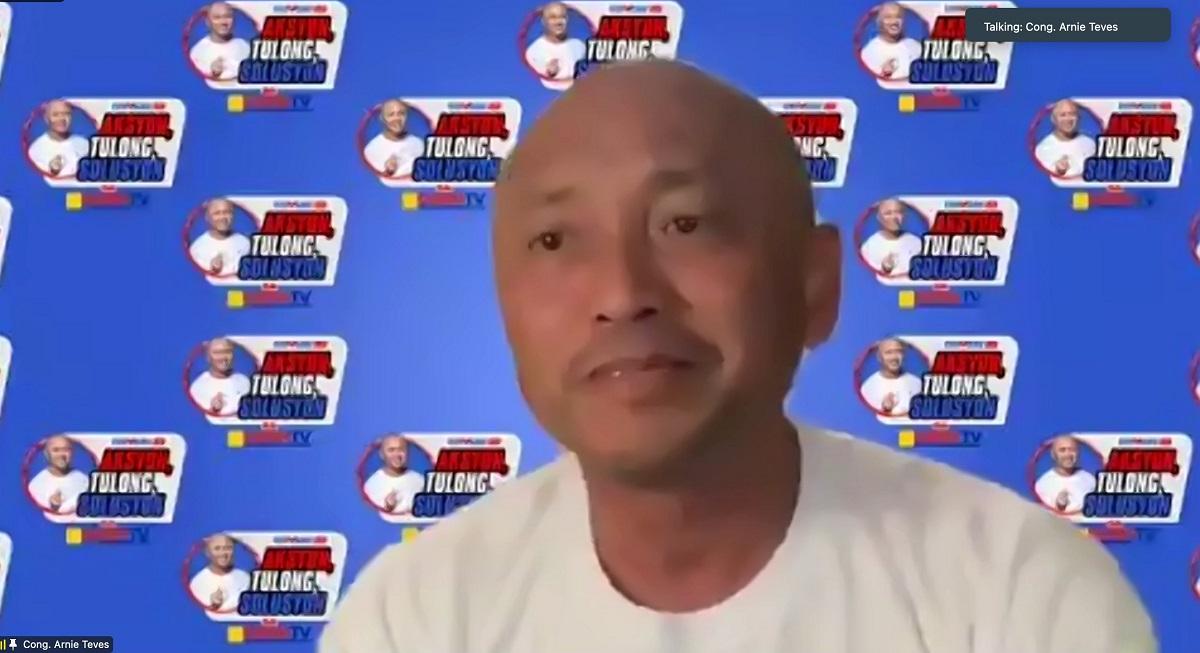No timeline yet on Arnie Teves’ return to PH —DOJ

The Department of Justice (DOJ) on Friday said there is no timeline yet on the possible return of former Negros Oriental representative Arnolfo “Arnie” Teves Jr. to the country as his camp may still appeal the decision granting his extradition.
On Thursday, the DOJ announced that Timor-Leste granted anew the country’s extradition request for Teves, who is facing multiple murder charges in the Philippines. However, it said that Teves still has 30 days to file an appeal.
“Well, it’s hard to give a timeline right now given that the period is still open for the appeal,” Justice spokesperson Mico Clavano said in an ambush interview.
“Kaya po siguro, as we are just a participant and a party in the case, we will just have to comply with the periods given to us and to the other party,” he added.
Timor-Leste previously granted the country's extradition request for Teves in June.
However, Teves' camp contested the ruling on procedural grounds, specifically on the number of judges involved in the decision. This prompted the Timor-Leste court to order the parties to again present evidence in the case.
According to Clavano, the DOJ is hopeful that the Timor-Leste court will rule in their favor again should Teves’ camp file an appeal.
“Opo, kasi kumbaga nakita ho natin ‘yung temperatura nung mga justices, no? Pangalawang pagkakataon na po ito at parehas pa rin po ang decision nila. Kaya hindi natin— we do not expect na mag iiba pa po ‘yung decision ng Timor-Leste,” he said.
(Yes, because we have seen the stance of the justices, right? This is the second time, and their decision remains the same. So we do not expect that the decision of Timor-Leste will change.)
Further, he said that all the points raised by the Philippine government were included in the decision.
“They respected our laws in the decision, they used our own laws, and they also used international law in coming up with this very sound decision. So we are happy and we welcome this decision,” he said.
The ruling
In the 74-page decision, the Timor-Leste Court of Appeal said it is clear that the Philippine government made the extradition request in order for Teves to face his charges in the Philippines and not because he is a political enemy.
“It is clear from the extradition request that the State of the Philippines is seeking extradition for criminal proceedings on the grounds that the extraditee is the mastermind of several murders, some of which were committed and others thwarted and attempted, and not on the grounds that the extraditee supported this or that presidential candidate and is or is not a political enemy,” it said.
The court said it was convinced that Teves did not return to the country due to the criminal charges against him.
“[T]he Court was convicted that the extraditee did not return not to answer the criminal charges at issue,” it said.
Further the court did not give weight to the argument of Teves camp that he will be subjected to torture during interrogation and to cruel, inhumane, and degrading treatment in prison or that he runs the risk of being killed before trial.
“The 1987 Constitution of the Philippines, as well as the Philippine criminal code procedural legislation, provide the most basic procedural rights for defendants,” it said
“[S]o we feel that there is no reason to believe that the Extraditee will not be subjected to a process that is not fair and equitable and that does not have all the guarantees of defence,” it added.
It also said that it is not credible that the Philippine government would torture Teves after it requested the extradition as the government would lose international credibility should it do so.
Meanwhile, one judge of the Timor-Leste court voted against the decision to extradite Teves.
The judge believes that President Ferdinand Marcos Jr. began a political persecution against Teves after the latter criticized him in a public speech. The judge also believes there is a possibility that Teves may be subjected to inhuman or degrading treatment.
“If the witness was tortured, there is a strong indication that the judicial system of the requesting state may employ similar methods against the extraditee. This situation is key to refusing the extradition request, as there is a risk of fundamental human rights being violated,” he said.
Aside from facing murder charges on the death of Negros Oriental governor Roel Degamo in 2023, Teves and others have also been charged with the alleged killings of three individuals in Negros Oriental in 2019.
Teves and 12 others have also been designated as terrorists by the Anti-Terrorism Council, citing several alleged killings and harassment in Negros Oriental.
He was expelled by the House of Representatives in August last year for disorderly conduct and continued absence.
The former lawmaker has repeatedly denied the allegations against him.—AOL, GMA Integrated News




